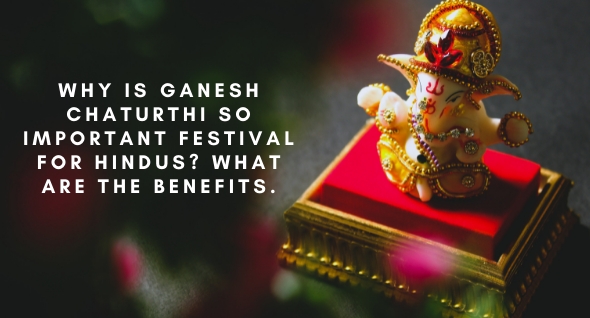Astrology Kart astrologers explains, Every year, Ganesh Chaturthi, also known as VinayakaChavithi, is an auspicious Hindu celebration that lasts for ten days. The celebration takes place inside the Bhadra month, usually falls around mid-August and September on the Hindu calendar. It is the birthday of Lord Ganesha, the elephant-headed deity chat with astrologer. Ganesha is the Hindu God of money, sciences, knowledge, wisdom, and prosperity, which is why most Hindus remember him and ask for his blessings before beginning any major project. Gajanana, Vinayaka, and Vighnaharta are only a few of Lord Ganesh's 108 names. This day is celebrated with tremendous devotion and delight by Hindus all over the world. It is primarily observed in Maharashtra, Gujarat, Goa, Madhya Pradesh, Karnataka, and Telangana in India Chat with Astrologer.
- History of Ganesh Chaturthi
- Astrologykart.com, Lord Shiva, and Parvati have a younger son, Ganesha. There are several versions of his birth story, but two are the most popular.
- According to the original story, Parvati formed Lord Ganesha from out dust from their own body to prevent her inside the absence of Shiva. She assigned him the responsibility of keeping an eye on her bathroom door while she took a bath. Meanwhile, Shiva arrived home, and Ganesha interfered, despite not knowing who Shiva was. This infuriated Shiva, who removed Ganesha's head following a struggle between the two. When Parvati learned of this, she was furious, and Lord Shiva swore to bring Ganesha back to life. The devas were sent north to look for a child's head, but all they discovered was indeed an elephant's head. The elephant's head was put on the child's body by Shiva. Ganesha was born in this manner to Talk to Astrologer.
- Another common legend claims that the Devas asked Shiva and Parvati to create Ganesha so that he could be a Vighnaharta (averter of barriers) for rakshasas (demons) and thereby aid the Devas.
- Devotees who worship Ganesha are thought to be able to fulfill their wishes. As a result, the central theme of Ganesha Chaturthi is that worshippers who worship Him are cleaned of their sins and led along the path of enlightenment and wisdom.
- The event has been commemorated since the reign of King Shivaji. During India's independence battle, LokmanyaTilak changed Ganesh Chaturthi from a private festival to a large public show where people of all castes could come together, pray, and be united. As environmental awareness has risen over the years, people have started to enjoy Ganesh Chaturthi in a more ecologically sensitive manner. This involves getting Ganesha idols made with natural clay/mitti and only using blossoms and natural materials to decorate the pandals.
- VinayakaChavithi's Rituals
- During the 10-day celebration, there are four main rites that are done. Pranapratishhtha, Shhodashopachara, Uttarpuja, and GanpatiVisarjan are the four.
- The anticipation for Ganesh Chaturthi builds for weeks before the celebration.
- Ganesha figurines are put in aesthetically constructed 'pandals' at houses, temples, and other locales; artisans begin making Ganesha clay idols in perceptions and sizes. The statue is also adorned with flowers, garlands, and lights. A priest repeats a mantra to evoke life in the diety in a process known as Pranapratishhtha.
- The idol of Ganesha is then prayed to in 16 distinct ways. This ceremony is known as Shhodashopachara.
- People sing and play Christian music, dancing to drum rhythms and let off rockets, all of which add to the festive mood. Following that, the Uttarpuja ritual is performed, which comprises politely bidding Ganesha farewell. The GanpatiVisarjan ceremony follows, in which the figure is immersed in water. People usually chant in Marathi, "GanapatiBappaMorya, PurchyaVarshiLaukariya," which means "Goodbye Lord, please come back next year," while dragging the statue to the water and immersing it.
Some worshippers celebrate the day at home, while others visit public pandals to offer their devotion to Lord Ganesha. People pay Ganesha their respects, prayers, and sacrifices. For friends, relatives, and visitors, dishes like Lord Ganesha'sfavouriteModak, PooranPoli, and Karanji are cooked. Astrology Advice
